Caregiver Connection – Darsheen & Gloria
When asked what called her to become a caregiver, without hesitation Darsheen said, “It’s something that I have been doing since I was a little girl. It’s just something that is instilled in me”. From a very young age, Darsheen was taught to care for,...
03 September, 2020





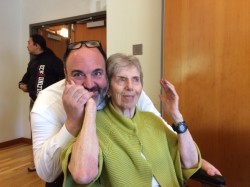 Andrew Cohen, of
Andrew Cohen, of 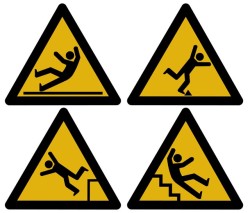 ng cause of injury-related hospitalization for older adults. If you're 65 years of age or over you have a 1 in 3 chance of falling. More than 12,000 people in Washington are hospitalized for a fall each year causing skilled nursing stays, loss of independence and fatalities at disturbing rates. So, starting now, September 23rd, National Falls Prevention Awareness Day, please take a minute to consider the information offered to help you and your loved ones stay safe from falls. Falls aren't a normal part of aging. For the most part they're preventable which means that your awareness and proactive decisions make a difference. The risk factors that cause falls are known and can be addressed in three steps:
ng cause of injury-related hospitalization for older adults. If you're 65 years of age or over you have a 1 in 3 chance of falling. More than 12,000 people in Washington are hospitalized for a fall each year causing skilled nursing stays, loss of independence and fatalities at disturbing rates. So, starting now, September 23rd, National Falls Prevention Awareness Day, please take a minute to consider the information offered to help you and your loved ones stay safe from falls. Falls aren't a normal part of aging. For the most part they're preventable which means that your awareness and proactive decisions make a difference. The risk factors that cause falls are known and can be addressed in three steps: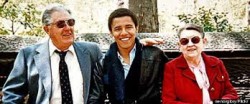 Those are the words of President Barack Obama in his
Those are the words of President Barack Obama in his  Do you run? Walk? Bicycle? If you do, you're part of the reason that Seattle consistently ranks in the top ten fittest cities. If you need some motivation to join the crowd the National Institute on Aging has launched an annual program called Go 4 Life. Go 4 Life promotes physical activity to improve quality of life for older adults. This isn't just about urging couch potatoes to move this is a drive to bring exercise to everyone whether you have arthritis, live with dementia, suffer depression, experience low vision, or just feel too busy. Tap into the movement and improve your health--- it's Go 4 Life month!
Do you run? Walk? Bicycle? If you do, you're part of the reason that Seattle consistently ranks in the top ten fittest cities. If you need some motivation to join the crowd the National Institute on Aging has launched an annual program called Go 4 Life. Go 4 Life promotes physical activity to improve quality of life for older adults. This isn't just about urging couch potatoes to move this is a drive to bring exercise to everyone whether you have arthritis, live with dementia, suffer depression, experience low vision, or just feel too busy. Tap into the movement and improve your health--- it's Go 4 Life month!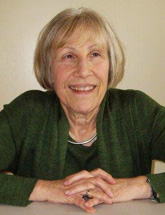 Carin Mack[/caption] You probably think of Seattle as a national leader in tech, bio tech, aviation, and, of course the standardized cup of coffee...but did you know Seattle leads the nation in comprehensive, innovative dementia programming? Pockets of programming have been available in the city since the late 90's but recent expansions in services complement one another and form an outstanding network of support for all stages of memory loss. Seattle social worker Carin Mack stewards and develops Early Stage Memory Loss (ESML) programs for people in the early to mid stages of dementia. I spoke with Mack about her ESML programs and Seattle's progressive dementia services. "It takes money, time and structure to build programming," Carin Mack explained. Leveraging her experience and vision gleaned from nearly 40 years of social work Mack gradually built the structure for her nationally unparalled hub of ESML services at
Carin Mack[/caption] You probably think of Seattle as a national leader in tech, bio tech, aviation, and, of course the standardized cup of coffee...but did you know Seattle leads the nation in comprehensive, innovative dementia programming? Pockets of programming have been available in the city since the late 90's but recent expansions in services complement one another and form an outstanding network of support for all stages of memory loss. Seattle social worker Carin Mack stewards and develops Early Stage Memory Loss (ESML) programs for people in the early to mid stages of dementia. I spoke with Mack about her ESML programs and Seattle's progressive dementia services. "It takes money, time and structure to build programming," Carin Mack explained. Leveraging her experience and vision gleaned from nearly 40 years of social work Mack gradually built the structure for her nationally unparalled hub of ESML services at 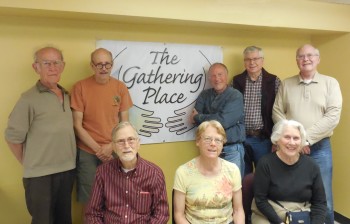 CeCe, a Gathering Place attendee writes in an awareness handout created by members of the program.
CeCe, a Gathering Place attendee writes in an awareness handout created by members of the program.